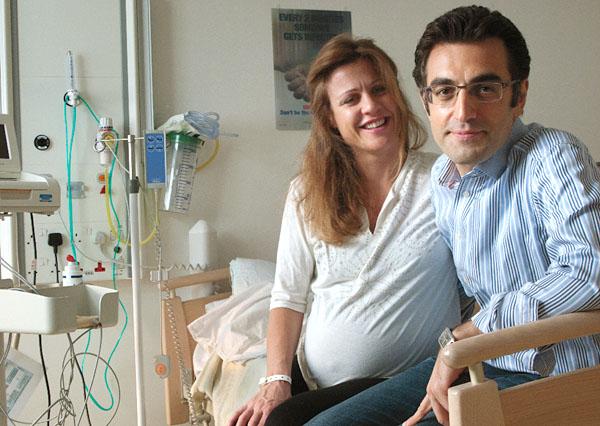Newsweek correspondent Maziar Bahari, aged 42, was released on 17 October 2009 from Evin prison, on a bail of approximately $300,000. He had been detained since 21 June 2009, and is among around one hundred opposition leaders and dissidents accused of fomenting a ‘velvet revolution’ following the disputed presidential elections on 12 June. Bahari’s arrest is part of a major crackdown on dissent which has seen unprecedented restrictions on the foreign media in Iran.
Maziar Bahari is believed to have been released on humanitarian grounds, two days before his wife gave birth to the couple’s first child. He has now been allowed to leave Iran and is reunited with his family.
 Although we warmly welcome his release, English PEN reminds the Iranian authorities of their obligations to Article 19 of the International Covenant on Civil and Political Rights, and continues to call for the charges against Maziar Bahari to be dropped.
Although we warmly welcome his release, English PEN reminds the Iranian authorities of their obligations to Article 19 of the International Covenant on Civil and Political Rights, and continues to call for the charges against Maziar Bahari to be dropped.
Overwhelming solidarity
Several hundred authors, journalists, and filmmakers from around the world, including several Nobel prize winners, have signed petitions asking for his release. Last month he was a finalist for Spain’s Prince of Asturias Award for Concord, which has been compared to the Nobel Peace prize. According to The Wall Street Journal, his case was raised along with those of other detained foreign nationals at talks between the United States and Iran in Geneva recently.
“I was humbled by such overwhelming solidarity among my colleagues, friends, and even strangers, who all worked so hard to save me,” said Maziar Bahari, now finallly re-united in London with Paola Gourley, to his editor, Christopher Dickey of Newsweek.
“Although he is some 25 pounds lighter than when he went into prison four months ago, he otherwise appears in good health,” writes Dickey. “He says he suffered relatively little physical abuse, but a great deal of psychological stress, and he knows there will be aftershocks.”
Through his months in solitary confinement, Bahari had never once been allowed to see a lawyer, although he was pushed in front of government television cameras to confess that he had inadvertently helped to promote a “velvet revolution” against the Islamic Republic in the wake of the bitterly contested June 12 elections that returned President Mahmoud Ahmadinejad to power.


